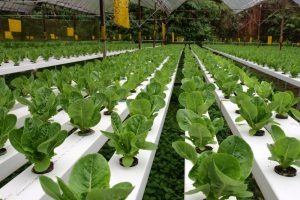 The U.S. Department of Agriculture’s (USDA) National Institute of Food and Agriculture (NIFA) announced the availability of $17.6 million in grants focused on organic agriculture research, education, and extension activities. These grants are funded through a competitive process by NIFA’s Organic Agriculture Research and Extension Initiative, authorized by the 2014 Farm Bill.
The U.S. Department of Agriculture’s (USDA) National Institute of Food and Agriculture (NIFA) announced the availability of $17.6 million in grants focused on organic agriculture research, education, and extension activities. These grants are funded through a competitive process by NIFA’s Organic Agriculture Research and Extension Initiative, authorized by the 2014 Farm Bill.
“America’s organic industry continues to be one of the fastest growing segments of U.S. agriculture,” said NIFA Director Dr. Sonny Ramaswamy. “NIFA strives to support the development and deployment of science-based best knowledge and practices to organic producers to help them grow their businesses while solving critical organic agriculture issues, priorities, or problems.”
The Organic Agriculture Research and Extension Initiative (OREI) supports research, education, and extension programs that enhance the ability of producers and processors who have already adopted organic standards to grow and market high quality organic agricultural products. Priority areas include biological, physical, and social science research, including economics. Funded projects will aid farmers and ranchers with whole-farm planning by delivering practical, research-based information to improve their ability to develop an Organic System Plan required for certification.
Eligible entities include land-grant and other research universities, federal agencies, national laboratories, state agricultural experiment stations, research foundations, and other private researchers.
Applications must be received by March 1, 2018.
See the OREI funding opportunity for additional information.
Previously funded projects include research for the University of Wyoming’s experiential learning curriculum, which merged science-based theory and real-life applications in order to expose learners to the diversity of farming opportunities across the U.S. Interviews with 19 organic instructors from universities and colleges showed that social justice and livestock production were among the least covered topics. Also, systems thinking was identified as a critical skill for students engaged in organic agriculture curriculum.
Another NIFA-funded project supported researchers at the University of New Hampshire as they developed a consortium of expertise to address current and future needs of organic dairy farmers interested in resilient forage production systems and new milk markets in their region. Several results emanated from this project: 100 northeastern organic dairy farmers transitioned their milking cows to high-forage or forage-only diets; 200 adopted or fine-tuned the use of annual forage crops to extend the grazing season; 6,000 acres of organic summer annuals were planted in New Hampshire, Maine, Vermont, Pennsylvania, and New York; and milk content of omega-3 fatty acids and conjugated linoleic acid increased by an average of 76 and 42%, respectively, in cows fed ground flaxseed.
NIFA’s mission is to invest in and advance agricultural research, education, and extension to solve societal challenges. NIFA’s investments in transformative science directly support the long-term prosperity and global preeminence of U.S. agriculture. To learn more about NIFA’s impact on agricultural sciences, visit https://www.nifa.usda.gov/Impacts, sign up for email updates, or follow us on Twitter @USDA_NIFA, #NIFAImpacts.










